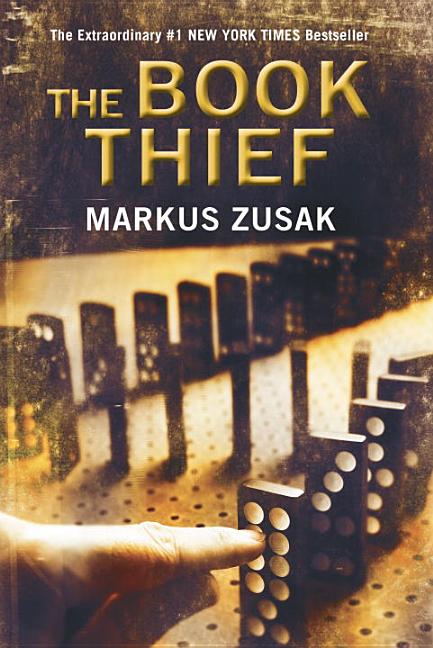Book Descriptions
for The Book Thief by Markus Zusak
From Cooperative Children's Book Center (CCBC)
From The United States Board on Books for Young People (USBBY)
The Frankfurt Book Fair is a meeting place for the industry’s experts each year in October. This fair is the most important marketplace for books, me dia, rights, and licenses worldwide. The Frankfurt Book Fair attracts more than 7,300 exhibitors from one hundred countries, 299,000 visitors, and over ten thousand journalists from sixty-three countries.
Originally published by Pan Macmillan Australia, in 2005.
From the Publisher
Set during World War II in Germany, Markus Zusak's groundbreaking novel is the story of Liesel Meminger, a foster girl living outside of Munich. Liesel scratches out a meager existence for herself by stealing when she encounters something she can't resist-books. With the help of her accordion-playing foster father, she learns to read and shares her stolen books with her neighbors during bombing raids as well as with the Jewish man hidden in her basement before he is marched to Dachau.
The country is holding its breath. Death has never been busier, and will become busier still.
"The Book Thief" is a Common Core Exemplar Text.


